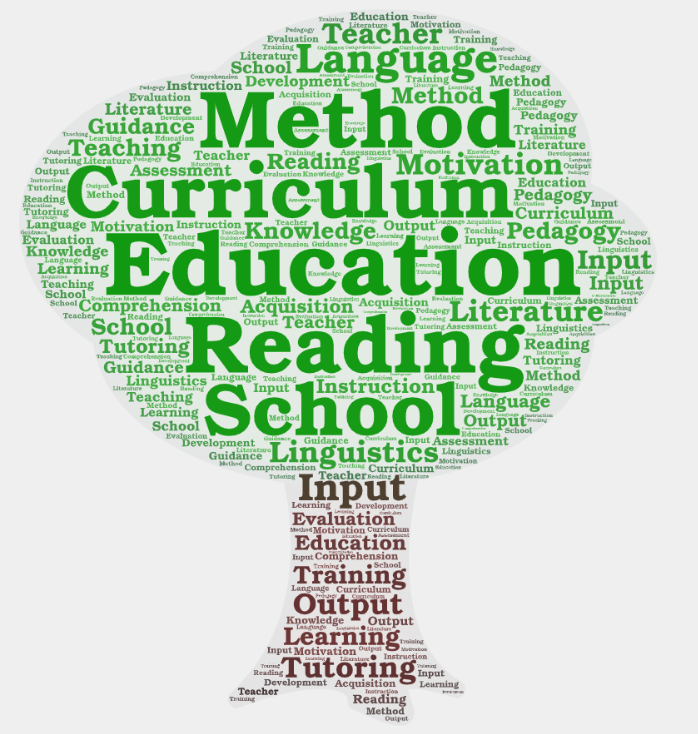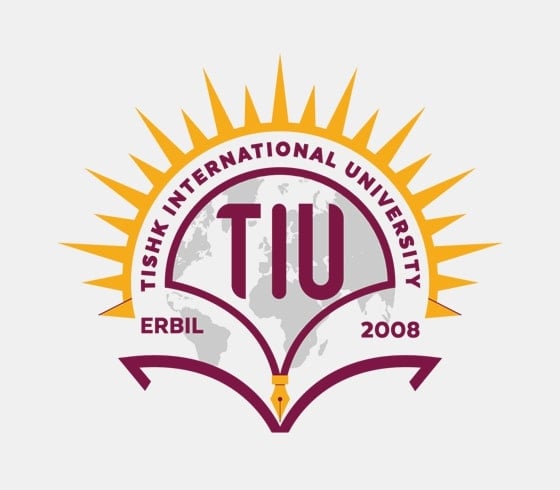Volume 11 Issue 1 Article 1
AI Integrated Grammar Teaching in Language Preparatory School
Turgay Kucuk1
11English Language Teaching Department, Tishk International University, Erbil-KRI, Iraq
Abstract: The main goal of this research is to investigate the impact of artificial intelligence tools such as ChatGPT and chatbots on the acquisition of grammar skills, punctuation, subject-verb agreement, verb tenses, and others among students. Within this setting, a series of groups were established, consisting of twelve control groups and twelve experimental groups, employing the convenience sampling technique. The control group adhered to the traditional method of grammar instruction, whereas the experimental group employed a grammar learning approach that incorporated artificial intelligence capabilities. Based on the findings from tests and interview analyses, it has been ascertained that the integration of artificial intelligence in grammar education has a good impact on students’ academic achievement. Implementing Chatbot and ChatGPT technologies in education may provide some challenges, although it may also be an enjoyable endeavor. Simultaneously, conducting controlled tests in broader areas will yield more efficient outcomes. The pre-test data were analyzed using SPSS 27 statistical software. Initially, the students’ levels exhibited no variation. However, during the ten-week research, a statistically significant difference of .004 was observed. The experimental group exhibited a statistically significant increase of 27.25% in their success in learning grammar. The study revealed the presence of worries regarding privacy and addiction among students alongside the beneficial features. However, it was determined that the benefits surpassed the drawbacks, and this study will be a useful resource for scholars who will investigate the impact of artificial intelligence tools in education in the future.
Keywords: Artificial Intelligence, Chatbots, ChatGPT, Grammar Teaching
Published: February 11, 2024
References:
Alam, A. (2021a, December). Should robots replace teachers? Mobilisation of AI and learning analytics in education. In 2021 International Conference on Advances in Computing, Communication, and Control (ICAC3) (pp. 1-12). IEEE.
Alam, A. (2021b, November). Possibilities and apprehensions in the landscape of artificial intelligence in education. In 2021 International Conference on Computational Intelligence and Computing Applications (ICCICA) (pp. 1-8). IEEE.
Alam, A. (2022). Employing adaptive learning and intelligent tutoring robots for virtual classrooms and smart campuses: reforming education in the age of artificial intelligence. In Advanced Computing and Intelligent Technologies: Proceedings of ICACIT 2022 (pp. 395-406). Singapore: Springer Nature Singapore.
Ali, J. K. M., Shamsan, M. A. A., Hezam, T. A., & Mohammed, A. A. (2023). Impact of ChatGPT on learning motivation: teachers and students’ voices. Journal of English Studies in Arabia Felix, 2(1), 41-49.
Arslan, K. (2020). Eğitimde yapay zekâ ve uygulamaları. Batı Anadolu Eğitim Bilimleri Dergisi, 11(1), 71-88.
Ausat, A. M. A., Massang, B., Efendi, M., Nofirman, N., & Riady, Y. (2023). Can chat GPT replace the role of the teacher in the classroom: A fundamental analysis. Journal on Education, 5(4), 16100-16106.
Awalin, A. S. A., Iftanti, E., & Umami, M. S. M. (2023, September). Students’ Perceptions on The Impact of Artificial Intelligence on English Grammar Learning. In International Conference on Education (pp. 169-174).
Baidoo-Anu, D., & Ansah, L. O. (2023). Education in the era of generative artificial intelligence (AI): Understanding the potential benefits of ChatGPT in promoting teaching and learning. Journal of AI, 7(1), 52-62.
Biswas, S. (2023). Role of Chat GPT in Education. Available at SSRN 4369981. https://www.opastpublishers.com/open-access-articles/role-of-chat-gpt-in-education.pdf
Celik, I., Dindar, M., Muukkonen, H., & Järvelä, S. (2022). The promises and challenges of artificial intelligence for teachers: A systematic review of research. TechTrends, 66(4), 616-630.
Chen, L., Chen, P., & Lin, Z. (2020). Artificial intelligence in education: A review. Ieee Access, 8, 75264-75278.
Cheng, X., Su, L., Luo, X., Benitez, J., & Cai, S. (2022). The good, the bad, and the ugly: Impact of analytics and artificial intelligence-enabled personal information collection on privacy and participation in ridesharing. European Journal of Information Systems, 31(3), 339-363.
Curzon, J., Kosa, T. A., Akalu, R., & El-Khatib, K. (2021). Privacy and artificial intelligence. IEEE Transactions on Artificial Intelligence, 2(2), 96-108.
Daskan, A. (2023). The Challenges of Grammar Learning and Teaching and Students’ Perceptions in EFL Classes-Tishk International University, Erbil Case. International Journal of Social Sciences & Educational Studies, 10(3).
Duarte, F. (2023, Nov 23). “Number of ChatGPT Users” Discover exploding topics. https://explodingtopics.com/blog/chatgpt-users
Fahimirad, M., & Kotamjani, S. S. (2018). A review on application of artificial intelligence in teaching and learning in educational contexts. International Journal of Learning and Development, 8(4), 106-118.
Firat, M. (2023). How chat GPT can transform autodidactic experiences and open education. Department of Distance Education, Open Education Faculty, Anadolu Unive.
Fitria, T. N. (2021). The use technology based on artificial intelligence in English teaching and learning. ELT Echo: The Journal of English Language Teaching in Foreign Language Context, 6(2), 213-223.
Fuchs, K. (2023, May). Exploring the opportunities and challenges of NLP models in higher education: is Chat GPT a blessing or a curse?. In Frontiers in Education (Vol. 8, p. 1166682). Frontiers.
Grassini, S. (2023). Shaping the future of education: exploring the potential and consequences of AI and ChatGPT in educational settings. Education Sciences, 13(7), 692.
Güzey, C., Çakir, O., Athar, M. H., & Yurdaöz, E. (2023). Eğitimde Yapay Zekâ Üzerine Gerçekleştirilmiş Araştırmalardaki Eğilimlerin İncelenmesi. Bilgi ve İletişim Teknolojileri Dergisi, 5(1), 67-78.
Huallpa, J. J. (2023). Exploring the ethical considerations of using Chat GPT in university education. Periodicals of Engineering and Natural Sciences, 11(4), 105-115.
Hughes, S. H. (2019). Coursebooks: Is there more than meets the eye?. ELT Journal, 73(4), 447-455.
Humble, N., & Mozelius, P. (2019, October). Artificial intelligence in education—A promise, a threat or a hype. In Proceedings of the european conference on the impact of artificial intelligence and robotics (pp. 149-156).
İşler, B., & Kiliç, M. (2021). Eğitimde Yapay Zekâ Kullanimi ve Gelişimi. Yeni Medya Elektronik Dergisi, 5(1), 1-11.
Jeon, J., & Lee, S. (2023). Large language models in education: A focus on the complementary relationship between human teachers and ChatGPT. Education and Information Technologies, 1-20.
Kabudi, T., Pappas, I., & Olsen, D. H. (2021). AI-enabled adaptive learning systems: A systematic mapping of the literature. Computers and Education: Artificial Intelligence, 2, 100017.
Kara, S. (2023). The Effects of Web 2.0 Tools on Foundation English StudentsSuccess Rates at A Private University in Iraq. International Journal of Social Sciences & Educational Studies, 10(1), 22.
Karthikeyan, C. (2023). Literature Review on Pros and Cons of ChatGPT Implications in Education. International Journal of Science and Research (IJSR), 12(3).
Khang, A., Muthmainnah, M., Seraj, P. M. I., Al Yakin, A., & Obaid, A. J. (2023). AI-Aided Teaching Model in Education 5.0. In Handbook of Research on AI-Based Technologies and Applications in the Era of the Metaverse (pp. 83-104). IGI Global.
Khowaja, S. A., Khuwaja, P., & Dev, K. (2023). ChatGPT Needs SPADE (Sustainability, PrivAcy, Digital divide, and Ethics) Evaluation: A Review. arXiv preprint arXiv:2305.03123.
Kim, N. Y. (2019). A Study on the Use of Artificial Intelligence Chatbots for Improving English Grammar Skills. Journal of Digital Convergence, 17(8), 37-46. https://koreascience.kr/article/JAKO201925454134461.pdf
Kucuk, T. (2023). Factors Leading to Writing Anxiety in EFL Classes. International Journal of Social Sciences & Educational Studies, 10(1), 1-12.
Kucuk, T. (2023). Ronaki International School–Erbil (RISE) Students’ Attitudes Toward Online Assignment in Learning Management System (LMS). International Journal of Social Sciences & Educational Studies, 10(3), 392-402.
Kucuk, T. (2023). Students’ Perceptions of The Use of ICT Tools in Language Preparatory School. Arab World English Journal (AWEJ) Volume, 14.
Kucuk, T. (2023). Technology integrated teaching and its positive and negative impacts on education. International Journal of Social Sciences & Educational Studies, 10(1), 46-55.
Lee, H., & Hwang, Y. (2022). Technology-enhanced education through VR-making and metaverse-linking to foster teacher readiness and sustainable learning. Sustainability, 14(8), 4786.
Li, J., Cheng, H., Guo, H., & Qiu, S. (2018). Survey on artificial intelligence for vehicles. Automotive Innovation, 1, 2-14.
Limna, P., Jakwatanatham, S., Siripipattanakul, S., Kaewpuang, P., & Sriboonruang, P. (2022). A review of artificial intelligence (AI) in education during the digital era. Advance Knowledge for Executives, 1(1), 1-9.
Lynn, P. (2019). The advantage and disadvantage of implicitly stratified sampling. Methods, data, analyses: a journal for quantitative methods and survey methodology (mda), 13(2), 253-266.
Namatherdhala, B., Mazher, N., & Sriram, G. K. (2022). A comprehensive overview of artificial intelligence tends in education. International Research Journal of Modernization in Engineering Technology and Science, 4(7).
Niu, S. J., Luo, J., Niemi, H., Li, X., & Lu, Y. (2022). Teachers’ and students’ views of using an AI-aided educational platform for supporting teaching and learning at Chinese schools. Education Sciences, 12(12), 858.
Oseni, A., Moustafa, N., Janicke, H., Liu, P., Tari, Z., & Vasilakos, A. (2021). Security and privacy for artificial intelligence: Opportunities and challenges. arXiv preprint arXiv:2102.04661.
Sabzalieva, E., & Valentini, A. (2023). ChatGPT and artificial intelligence in higher education: quick start guide. https://eduq.info/xmlui/handle/11515/38828
Saura, J. R., Ribeiro-Soriano, D., & Palacios-Marqués, D. (2022). Assessing behavioral data science privacy issues in government artificial intelligence deployment. Government Information Quarterly, 39(4), 101679.
Stratton, S. J. (2019). Quasi-experimental design (pre-test and post-test studies) in prehospital and disaster research. Prehospital and disaster medicine, 34(6), 573-574.
Sun, Z., Anbarasan, M., & Praveen Kumar, D. J. C. I. (2021). Design of online intelligent English teaching platform based on artificial intelligence techniques. Computational Intelligence, 37(3), 1166-1180.
Tahiru, F. (2021). AI in education: A systematic literature review. Journal of Cases on Information Technology (JCIT), 23(1), 1-20.
Tseng, C. E., Jung, S. H., Elglaly, Y. N., Liu, Y., & Ludi, S. (2022, February). Exploration on Integrating Accessibility into an AI Course. In Proceedings of the 53rd ACM Technical Symposium on Computer Science Education-Volume 1 (pp. 864-870).
Whalen, J., & Mouza, C. (2023). ChatGPT: Challenges, Opportunities, and Implications for Teacher Education. Contemporary Issues in Technology and Teacher Education, 23(1), 1-23.
Xu, W. (2019). Toward human-centered AI: a perspective from human-computer interaction. interactions, 26(4), 42-46.
Zhai, X., Chu, X., Chai, C. S., Jong, M. S. Y., Istenic, A., Spector, M., … & Li, Y. (2021). A Review of Artificial Intelligence (AI) in Education from 2010 to 2020. Complexity, 2021, 1-18.
Zhou, J., Müller, H., Holzinger, A., & Chen, F. (2023). Ethical ChatGPT: Concerns, challenges, and commandments. arXiv preprint arXiv:2305.10646.
International Journal of Social Sciences & Educational Studies
ISSN 2520-0968 (Online), ISSN 2409-1294 (Print), December 2023, Vol.11, No.1
Journal Metrics
Keywords


Contact Info
Fakhir Mergasory School, Erbil, KRG, IRAQ
Email: [email protected]
